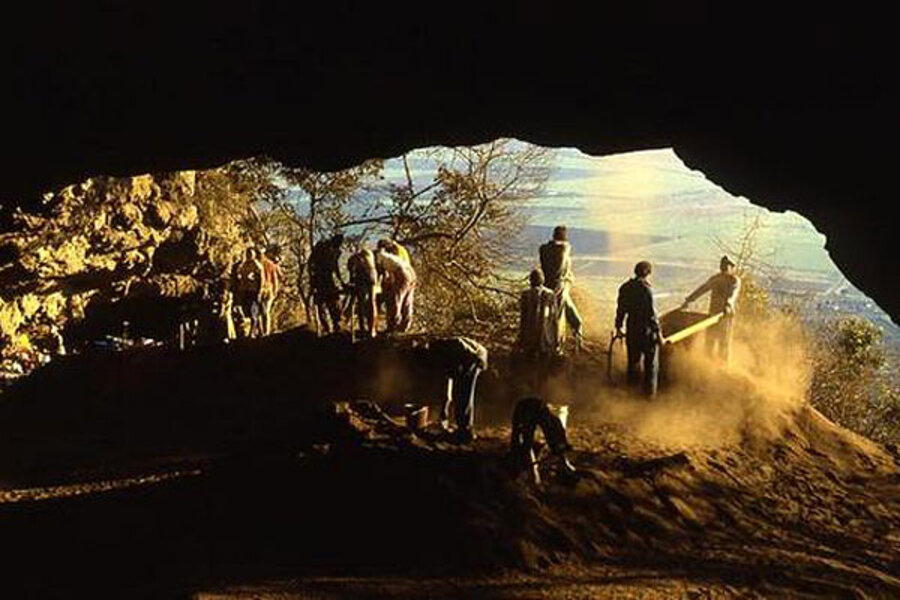When did modern culture begin?
| JOHANNESBURG
Poisoned-tipped arrows and jewelry made of ostrich egg beads found in South Africa show modern culture may have emerged about 30,000 years earlier in the area than previously thought, according to two articles published on Monday.
The findings published in the journal "Proceedings of the National Academy of Sciences" show that the 44,000-year-old artifacts are characteristic of the San hunter-gatherers. The descendants of San people live today in southern Africa, so the items can clearly be traced forward to modern culture, unlike other archaeological finds, researchers said.
South African researcher Lucinda Backwell said the findings are the earliest known instances of "modern behavior as we know it." Backwell said the discovery reinforces the theory that modern man came from southern Africa.
The carbon dating on the items shows that traces of the San culture may have existed earlier than the previous estimate of somewhere between 10,000 and 20,000 years ago, the journal said.
The find, discovered at Border Cave close to South Africa's northeastern border with Swaziland, is a comprehensive package of hunting kits and jewelry made of ostrich egg and marine shell beads.
Backwell, who was part of the team of international researchers that made the find, said the artifacts created as many as 44,000 years ago served the same purposes as they would today.
"They all have a specific reason we understand, that's why we can name them," Backwell said.
The researchers' articles said the Border Cave people used poisoned arrows to hunt and put spiral engraving on arrowheads to indicate ownership. The latter practice has been preserved in the San culture, they said.
Professor Francesco d'Errico of the French National Research Centre, who led the research team, said that the findings tell of a people who were highly evolved.
"They were fully modern genetically and cognitively," d'Errico said.
Their cognitive development is evident in their symbolic behavior, the professor said. The ostrich egg beads were not only ornaments, but played a major role in bartering with neighboring groups, he said. That practice continues today.
The paper claimed that the fossils show that all modern culture came from southern Africa, though the researchers acknowledged it remains difficult to pinpoint where in history that modernity began.
Eric Delson, a paleoanthropologist at Lehman College of the City University of New York, said that while the testing used by the researchers to determine the age of the fossils was very clear and reliable, the findings didn't support the idea that all modern human cultures are connected to this find.
He said there is evidence that a modern culture already existed in Europe around the time the new find is dated.
"They say, 'Modern human behavior first found!'" Delson said. "Well, not exactly."
He did, however, applaud the research for finding the origins of one specific group of modern people.
Scientists from Britain, France, Italy, Norway, South Africa and the U.S. all took part in the research, helmed out of the University of Witwatersrand in Johannesburg.





